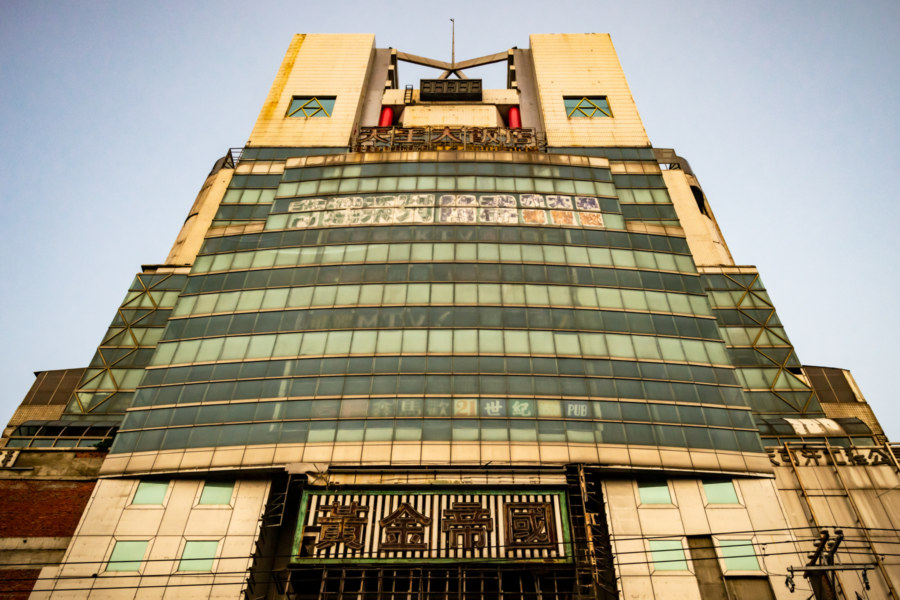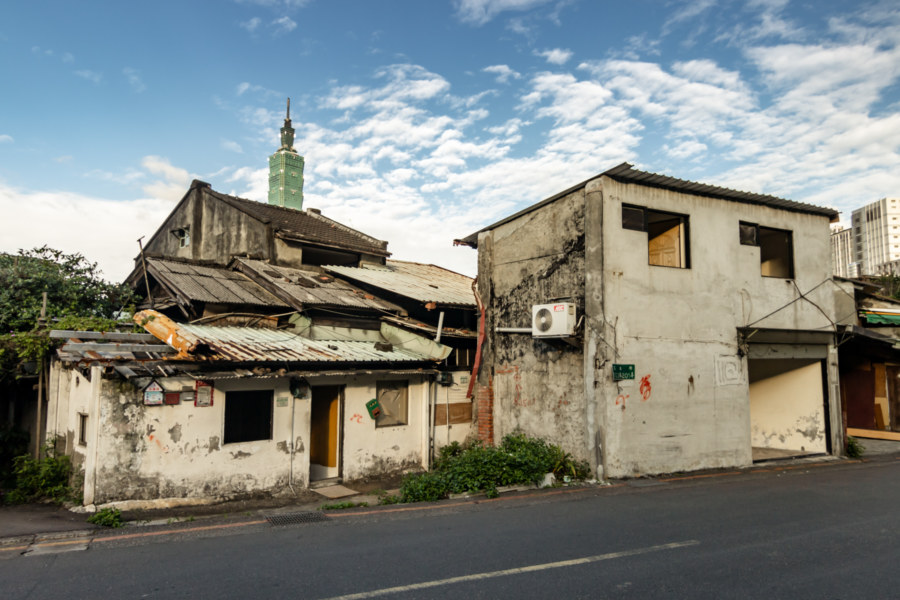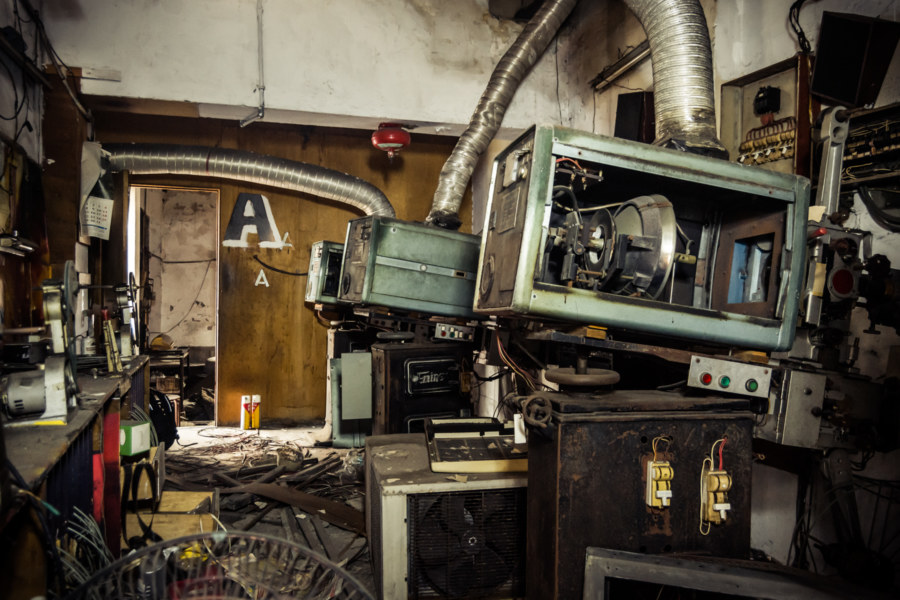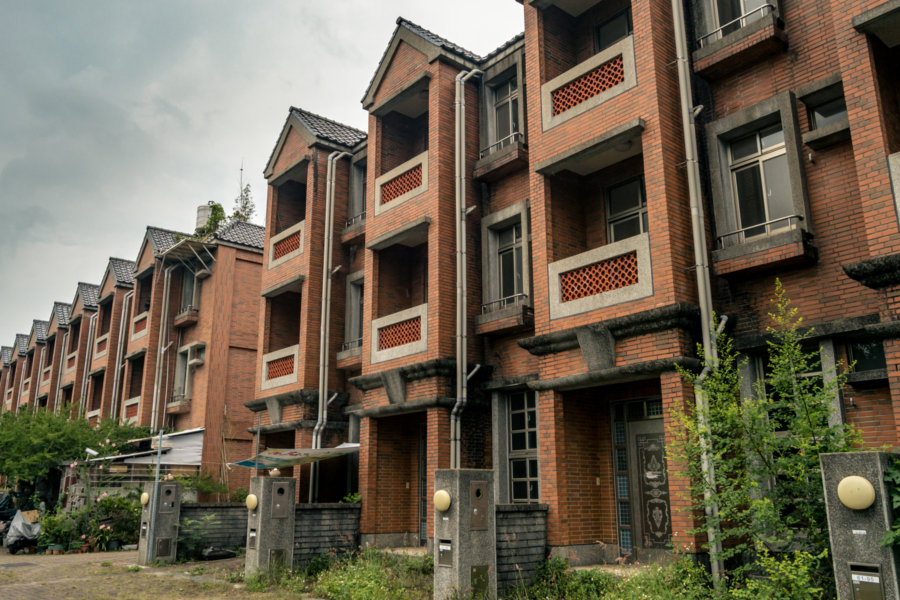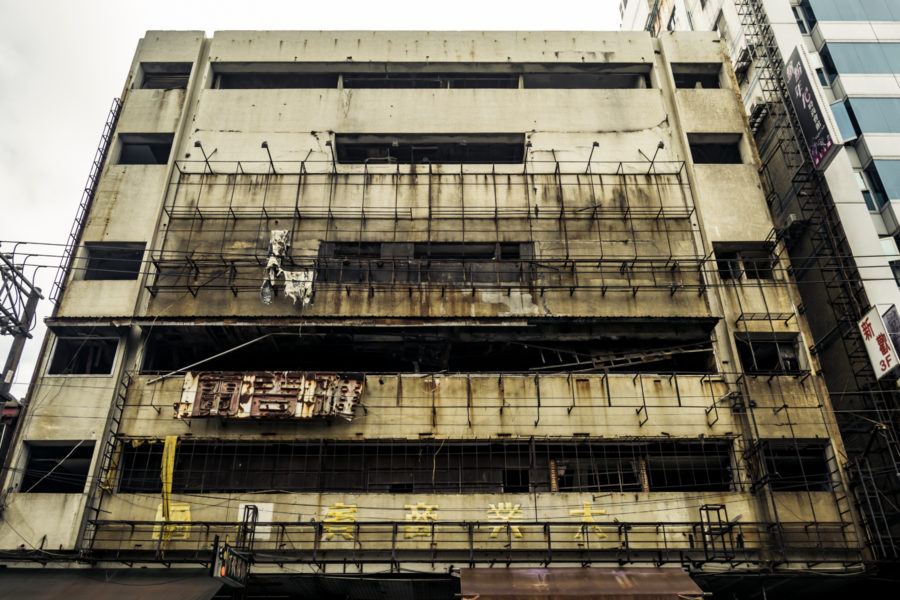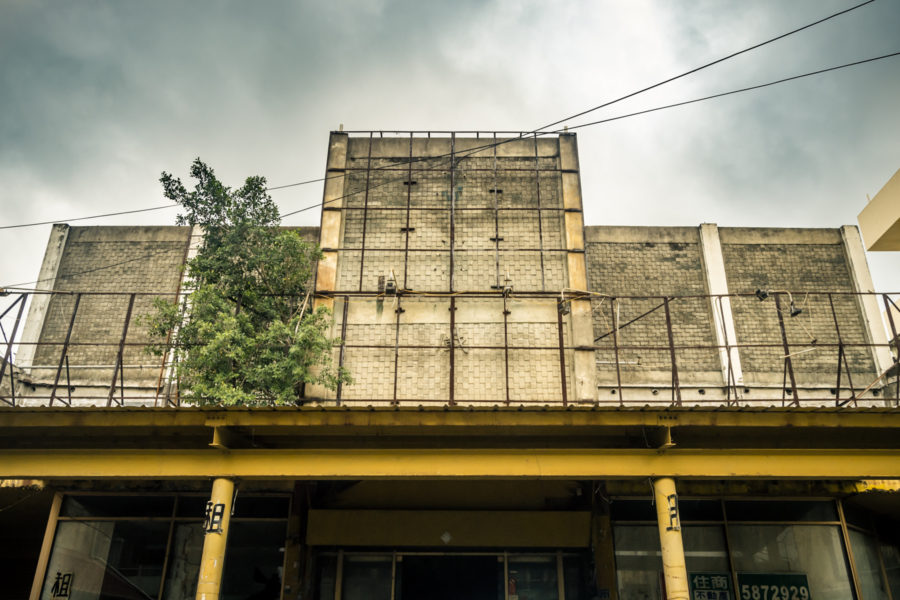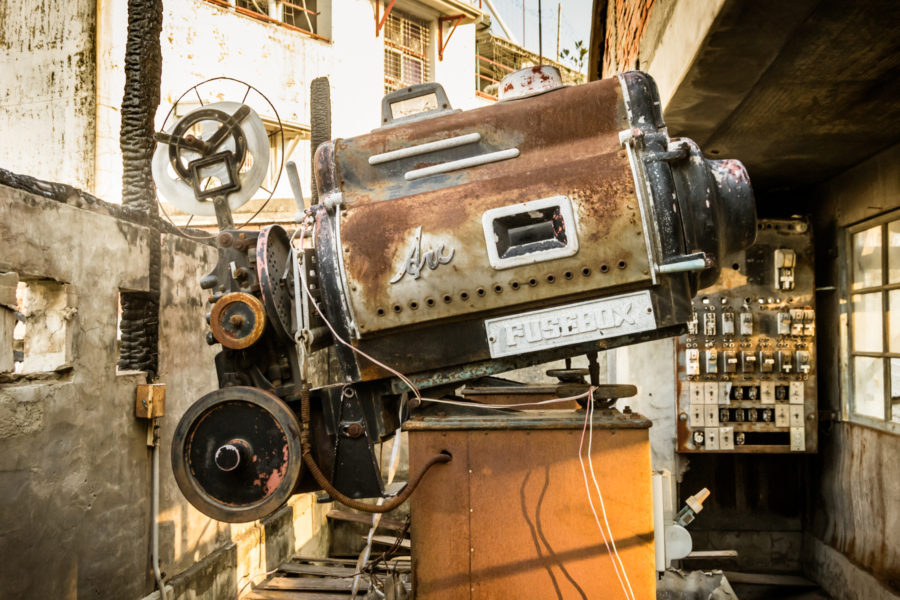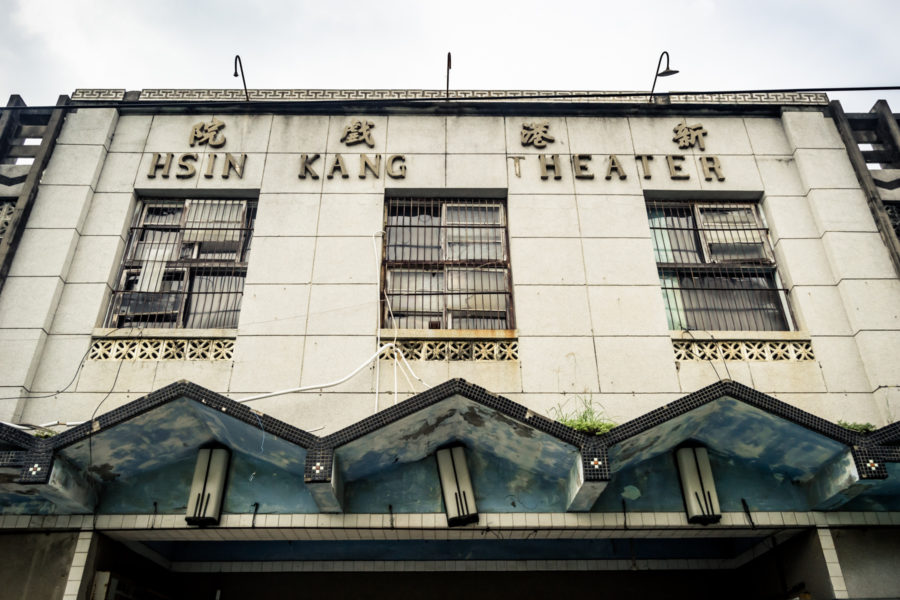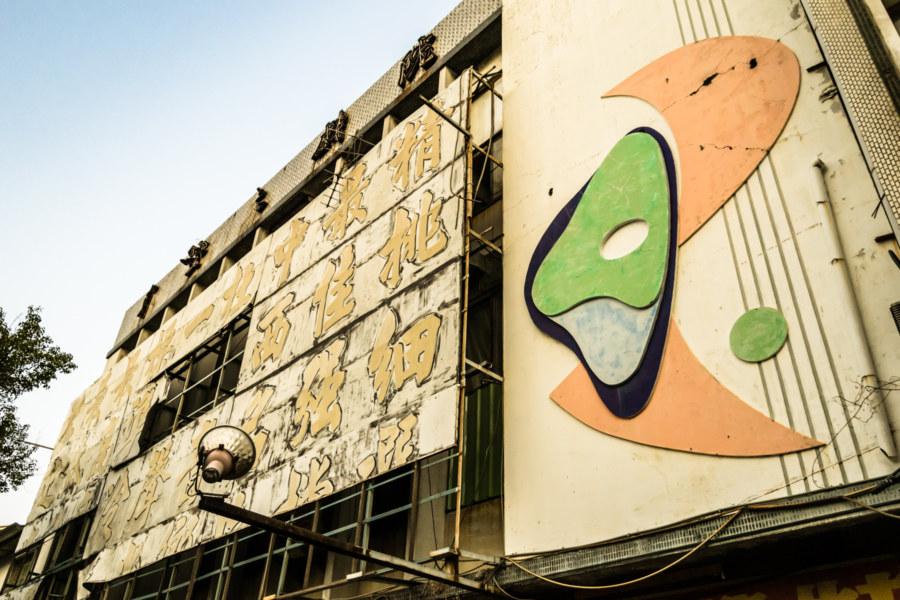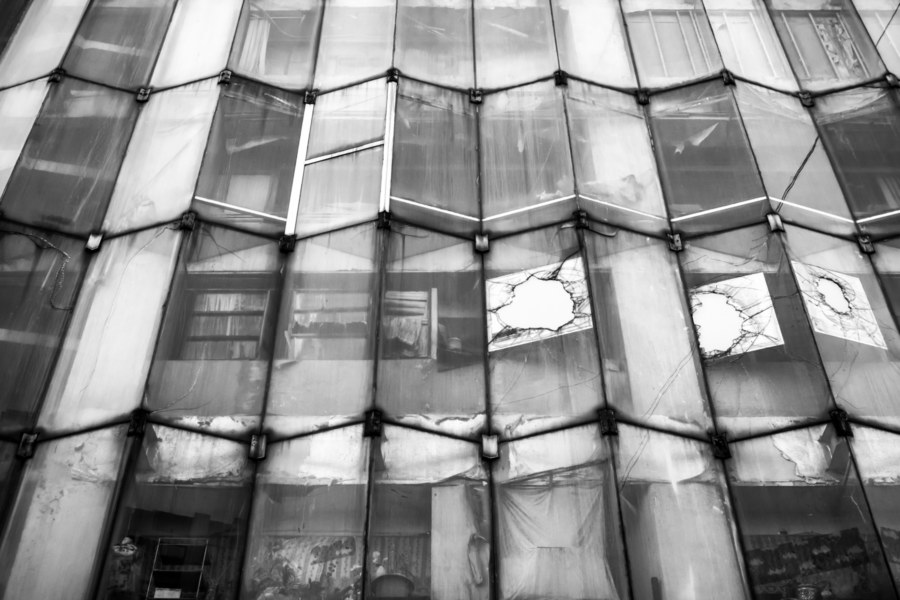Yuanlin is a modest settlement of approximately 125,000 residents located on the Changhua Plain (彰化平原) in eastern Changhua, Taiwan. It was formerly the most populous urban township in the nation, but Yuanlin was upgraded to a county-controlled city in 2015, second only to the administrative capital, Changhua City. Considerable work has been done in recent years to improve the urban environment of Yuanlin, and it feels like one of the few places between Taichung and Tainan that isn’t falling into disrepair and emptying out. That being said, urban decay remains widespread in Yuanlin, and there are many interesting ruins worth exploring before they disappear. For students of city planning and development this compact city also has quite a lot to offer—and in this post I aim to introduce some of its more intriguing features, mainly drawing upon photographs from 2013 to 2015, when I was spending significant amounts of time in the area.
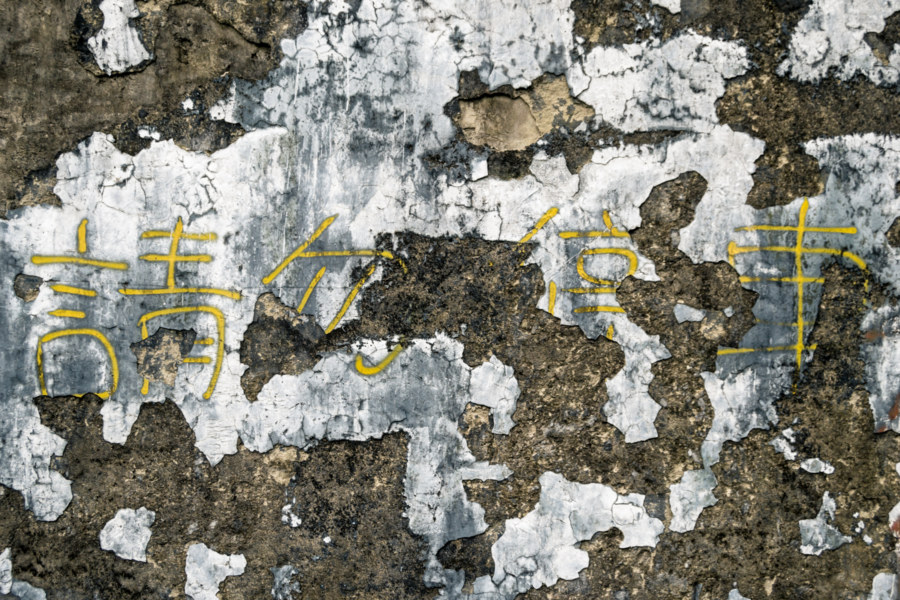
Urban decay (城市衰敗) is an ubiquitous presence in the cities of Taiwan. Gathered here are mostly minor works detailing the ruinous detritus and debris that litters the urban landscapes of the nation.
A Nameless Community in Xinyi District
Xinyi is among the richest and most expensive parts of Taiwan—but it hasn’t always been this way. Decades ago it was sparsely settled and far more industrialized, particularly around Wúxìng Street (吳興街), where I lived for several years in the late 2010s. This part of the city was once anchored by an immense army maintenance depot previously mentioned in this post, but the entire complex was demolished in the early 2010s, replaced by parking lots, basketball courts, and wide open fields. The former depot was surrounded by several military villages, all of which were also dismantled apart from the grim concrete apartment blocks of Wúxìng New Village (吳興新村) and, somewhat further north, the restored and revitalized #44 South Village (四四南村) across from Taipei 101.
Until recently there was also a cluster of what were probably illegal houses on the southern periphery of the former army depot. Nestled into a tiny patch of land next to the mountains and jutting into the factory grounds, this community was demolished in early 2017, but not before I made several visits to document its disappearance. There is nothing particularly noteworthy or unusual about this small community—and indeed, I can find no information about it whatsoever. This post serves only to document a nameless, unremarkable place, one of thousands disappearing into memory all across Taiwan.
Zhongli Dadong Theater 中壢大東戲院
Zhongli is home to a surprising number of disused and abandoned cinemas, relics of a lost age of theater in this conurbation of half a million sprawling across the central Taoyuan Plateau 桃園台地. Decades ago there were nearly two dozen standalone movie theaters in town—but only Zhongyuan Theater 中源大戲院, one of two in Taiwan still displaying hand-painted movie posters, clings to life as of 2018. Most of the others have been renovated beyond recognition or demolished, but several more are derelict, hard-worn subjects of entropy. Among these relics there are none more alluring than the imposing Dàdōng Theater 大東戲院 (literally the “Great Eastern Theater”), former anchor of Zhongli’s long-vanished Cinema Street 戲院街.
Kezikeng New Community 柯子坑新社區
Located on the outskirts of Zhushan, Kēzikēng New Community 柯子坑新社區 is one of several public housing projects constructed in the aftermath of the 921 Earthquake that devastated central Taiwan in 1999. Despite providing much-needed relief for those who lost their homes in the disaster there were few buyers—and today the complex remains mostly empty and disused. Built with government funds, this poorly-conceived housing project has become yet another example of what Taiwanese call mosquito halls, a term popularized by artist Yao Jui-chung 姚瑞中 and a team of student researchers known as Lost Society Document. Since 2010 they have published six volumes of Mirage, a series of works identifying more than 800 disused public properties all around the country. Some of their work was translated into English—which is how I found out about this particular locale, which I briefly visited in the summer of 2017.
Guobin Commercial Building 國賓商業大樓
Guóbīn Commercial Building 國賓商業大樓 is an ugly ruin in the heart of Zhongli, a city of around half a million people in Taoyuan, Taiwan. Built at the dawn of the booming 1980s, it was home to a variety of entertainment businesses over the years, and appears to have been mostly abandoned sometime around the turn of the millennium. Much to my surprise I’ve not found much about this place online, which suggests whatever newsworthy calamities befell this derelict commercial building predate the era of digital journalism. Without any sources to draw upon I can only make some educated guesses about what I captured during a brief visit in the early days of 2017.
Xiluo Huasheng Theater 西螺華聲戲院
Xiluo is justifiably famous for Xiluo Theater, the Japanese colonial era theater located close to the architectural wonders of Yánpíng Old Street 延平老街, but this small town on the south bank of the sluggish Zhuóshuǐ River 濁水溪 was once home to two additional theaters. Almost no mention of these other theaters can be found except in this news report about a local painter—but while browsing around satellite view on Google Maps I managed to locate Huáshēng Theater 華聲戲院 (also known as Yīshēng Theater 一生戲院).
Xinying Chenggong Theater 新營成功戲院
Despite its relative obscurity Xinying is the largest settlement along the railway line between metropolitan Tainan City and Chiayi City. It was the capital of Tainan County prior to amalgamation in 2010 and remains the secondary administrative seat of Tainan. Located on the broad and fertile Chianan Plain, it was also an important transportation hub for the sugar industry, and what remains of the Japanese colonial era sugar factory can still be found on the south side of town. Xinying was also home to half a dozen standalone movie theaters in its heyday, but most have since been demolished. I was fortunate to visit the ruined KMT authoritarian era cinema Chénggōng Theater (成功戲院) in 2017, not long before it was completely destroyed.
Hsin Kang Theater 新港戲院
Hsin Kang Theater 新港戲院 is located in the small town of Xingang, Chiayi, not far from the famous Fèngtiān Temple 奉天宮. Multiple sources agree it went out of business in 1988—a victim of shifting consumer preferences and demographic changes in small town Taiwan—but the actual age of the building is somewhat uncertain. This academic reference suggests it was founded in 1929, in the midst of the Japanese colonial era, but the theater was almost certainly renovated or completely rebuilt in the post-war period.
Dong’an Theater 東安戲院
Recently I added yet another theater to my growing catalogue of old school cinemas in Taiwan: the derelict Dōng’ān Grand Theater 東安大戲院 in East Tainan. This theater opened in 1969 and closed its doors not long after the turn of the millennium, another victim of changing consumer habits. I wasn’t able to find a way inside this theater so this post only features a handful of exterior shots and some links I chanced upon after conducting preliminary research.
Zhongwai Department Store 中外百貨
Today I went to investigate reports of an abandoned building on the edge of Xīméndīng (西門町), a busy commercial district in central Taipei. It is fairly well-known due to its central location but I could find no easy means of entry for the very same reasons. From this television news report it sounds as if this was originally the Zhōngwài Department Store Company (中外百貨公司) and later the Yángyáng Department Store (洋洋百貨). While it isn’t surprising to find such ruins around much of Taiwan it is somewhat unusual to see in such a prosperous area. The building is for rent, as I understand it, and much of the aforementioned report seems concerned with the outrageous price tag for such a decaying monstrosity.
